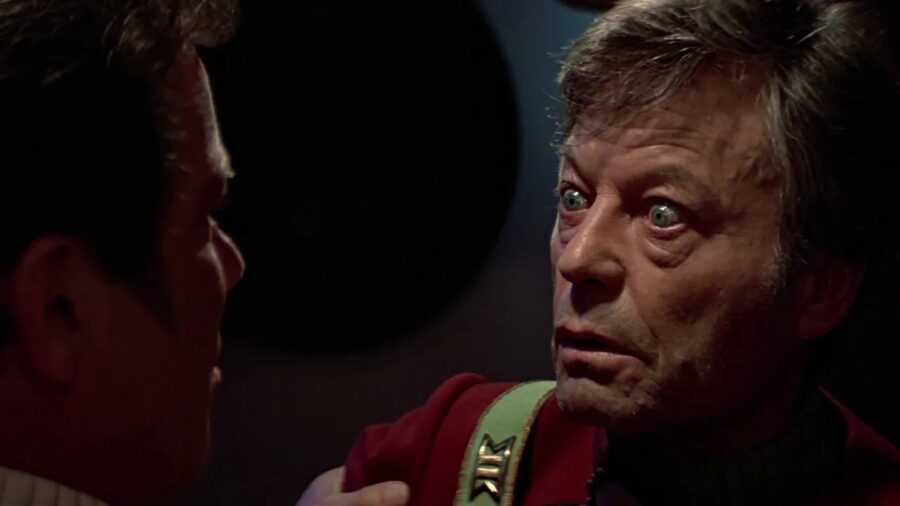The Star Trek Movie That Was Inspired By Fan Fiction
The fans helped make it happen!

Star Trek has never been shy about literary allusions. Both 1982’s Star Trek II: The Wrath of Khan and 1996’s Star Trek: First Contact pull from Herman Melville’s classic novel Moby Dick. On Star Trek: The Next Generation, the android Data regularly takes refuge in the stories of Sir Arthur Conan Doyle’s creation, Sherlock Holmes. But at least one film from the franchise was inspired not by novels of the Victorian era or poems from antiquity, but by a Star Trek fan fiction writer.
As remembered by Slash Film, in Edward Gross and Mark A. Altman’s The Fifty Year Mission, an oral history of the franchise, Harve Bennett says it was a piece of Star Trek fan fiction — or, more correctly, fan poetry — that inspired 1984’s Star Trek III: The Search for Spock. Bennett was a producer and writer on all the Trek films from The Wrath of Khan to 1989’s The Final Frontier, and he told Gross and Altman that he had hit a creative wall while working on The Search for Spock, and that he only got past it after reading a poem in a fan magazine. While he didn’t identify the poem or its author, he said the poem was written from James Kirk’s point of view and that part of it read, “I left you there. Why did I do that? I must come back to you, my friend.” Bennet said reading those lines gave him the inspiration he desperately needed.
The Wrath of Khan ends with tragedy — the Enterprise is crippled and Spock (Leonard Nimoy) sacrifices himself by exposing himself to deadly radiation in order to repair the ship. The Vulcan’s corpse is loaded into a torpedo tube and, after an emotional ceremony, fired from the ship. It lands on the newly formed planet Genesis and because of the place’s strange properties, Spock is revived but without his katra — his soul, or living spirt. In The Search for Spock we learn that the Vulcan transferred his katra to Dr. McCoy (DeForest Kelley) before his death, and because McCoy’s human brain doesn’t mix quite so well with a Vulcan soul, the poor doctor is losing his mind.

So the Star Trek fan fiction writer’s words should sound familiar to Trek fans, particularly, “I left you there. Why did I do that?” In the beginning of The Search for Spock, before anyone knows what’s happening to McCoy, Kirk (William Shatner) finds the doctor sitting in Spock’s quarters. While the words comes from McCoy’s body, the voice is clearly that of Leonard Nimoy who says, “Jim, help me. You left me on Genesis. Why did you do that?”
Neither the poem nor the Star Trek fan fiction writer have been positively identified, though Slash Film guesses it’s a poem named “gen.” Regardless, it’s far from the last example of Star Trek fans helping to guide what happens on the screen. In fact, there’s a pretty huge example that unfolded fairly recently. In season 3 of Star Trek: Discovery, we learn in the 32nd century the Vulcans and Romulans have once again become one people. To honor this unification, the planet Vulcan is renamed Ni’Var. The word “Ni’Var” was first coined by the fan fiction writer and linguist Dorothy Jones who reportedly created the Vulcan language. The word was later used for the title of a fan-written novel by Claire Gabriel which was later retitled The Thousandth Man.












